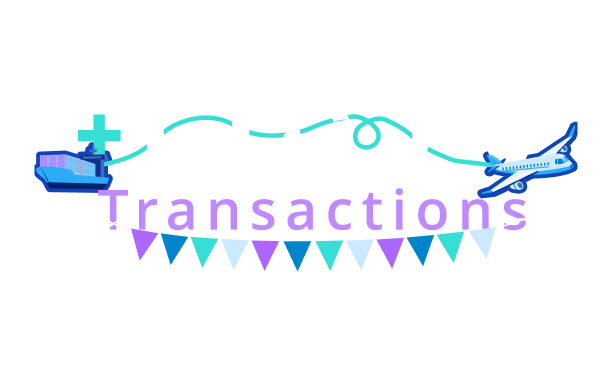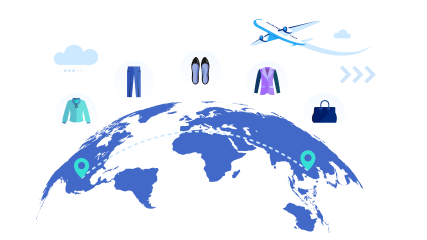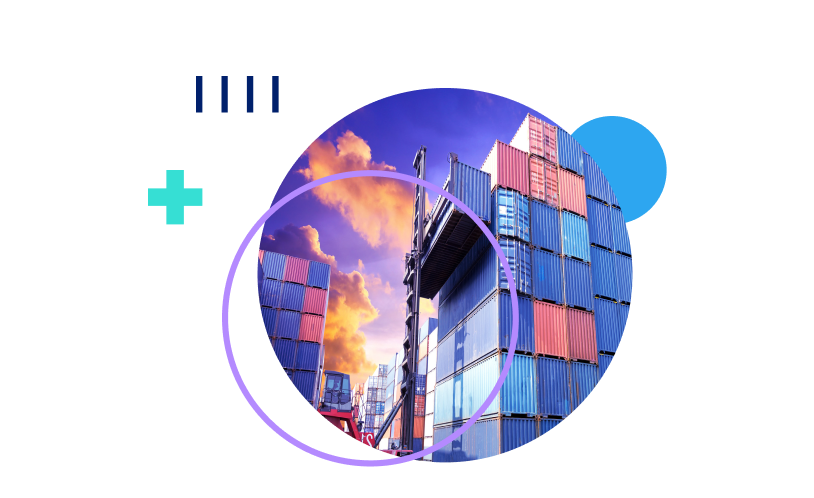In Freightos Q4 2023 KPI press release, we announced that the company surpassed one million bookings across the platform in 2023. This is both a sizable achievement but also indicates that there is a lot of work ahead. So to put this into context and understand just what it means for Freightos – and for the industry at large – I sat down with Zvi Schreiber, Freightos’ CEO, to understand the significance.
Q: What does Freightos’ million bookings per year milestone mean to you?
A: One million means we have reached real scale, and that we are a force in the industry. But also not to overstate it – this is a small percentage of the total industry and there is still a way to go. 1,000,000 is a big number and certainly indicates that Freightos is a significant platform in the industry. Giving credit where credit is due, this isn’t just a testament to what we have achieved – it’s a significant industry achievement, reflecting the fact that a conservative industry is finally going digital for real. This is particularly true on the air cargo side… but certainly not limited to air. Freight is digitizing itself now at real scale.
When the industry has over 1,000,000 electronic bookings, via a neutral platform, every year, it means that the industry has embraced structured processes for improved efficiency.
Crucially, the platform concept means that airlines don’t need to build one-off connections with each freight forwarder and that forwarders don’t need to update dozens of APIs a year. They each maintain just one single integration to the WebCargo by Freightos platform.
For Freightos, one million is proof of scalability. What we have built is repeatable. We know how to facilitate bookings. You may be able to fudge your way through 1,000 bookings and maybe use that to get to 10,000 bookings. But the only way to get to 1,000,000 bookings is to know what you’re doing, inside and out. To be highly automated, to drive real value to carriers, forwarders, and shippers, and to make sure the majority of the process for the vast majority of the bookings is automated with zero human touch. With a relatively small team, there’s no way we could reach 1,000,000 bookings without well over 90% being fully automated.
Q: What does it mean for the freight industry as a whole?
A: I believe it’s a strong mark of progress of the global freight industry that it was agile enough to adapt and digitize this quickly. It’s really quite inspiring to shift from having zero airline APIs, to carriers representing well over half of the carriers, by total capacity, in just five years. Unfortunately there is still a fairly marked contrast to ocean freight, where digital progress – especially on APIs and platforms – has been far more piecemeal. This has real implications that are particularly clear during crises like the Red Sea crisis, where it becomes hard for customers to get real-time visibility into prices, capacity and visibility in real-time….even though events lead to capacity and pricing changing dramatically in real-time.
That said, as a whole, the entire industry, is certainly embracing digitalization. The industry is taking digitalization seriously. And we’re proud to be a core platform for the industry’s transformation.
Q: What will it take to get to the second million?
A: Well the second million is easy, right. All we have to do is the same thing for another year. The next stage is really 10,000,000. We have grown six orders of magnitude to get from the first booking to 1,000,000 bookings in five years. When I say “we” I mean we the international freight industry, not just Freightos.
We have gone from 10,000 to 1,000,000 in only a couple of years. Now we need to continue to grow exponentially, and in order to do that we need to grow in all dimensions: more carriers, more forwarders, more geographies, more services, and more functionality. More connectivity between buyers and sellers. We’re well positioned to pull this off, with a leading aggregation of carriers and many thousands of forwarders and BCOs that depend on our solution. As long as we provide value for them – and continue to increase the value for them – I’m confident that the timeline to ten million will be shorter than the amount of time it took to reach the first million.
Q: Do you remember Freightos’ 100th, or 1,000th transaction?
A: Back then, every transaction was an uphill struggle. There were very few carries on the platform and there was human intervention in virtually every transaction. When we took our first booking on freightos.com, for example, we didn’t even have payment worked out. We quickly created a PayPal account and sent the buyer a link. Then we had a quarterly target of hitting five shipments a week. Today, we’re targeting five thousand in a day.
The amount of work that had to go into this, for us and our partners, is hard to describe, taking hundreds of people close to a decade. A lot of our work was educating the market. It’s not obvious that digital is an objective so we had to go beyond teaching everyone what digital meant – we had to prove why it was good for the industry. It was challenging to get the industry onboard.
But now, the industry is fully aware of the benefits and is leaning in. We’re at a point in the industry now where some 90% of the digital transactions have zero human touch. They are fully automated making the service quicker, and more efficient for customers. This also frees up more time for carriers and logistics professionals to focus on things that aren’t digitalized – especially customer relationships.
Q: Why do you think it took so long for the cargo to catch up to the digital world?
A:. Global freight is both international and incredibly complex. There are issues with language, currency, laws, and customs barriers. It is much more complicated than putting a domestic store online and selling domestic goods to domestic customers. There’s also a lot at risk; if a company is moving billions of dollars of goods every year, shifting processes to something dramatically different can take years.
This is one of the reasons that, in general, B2B (business to business), especially international B2B, sometimes feels 20 years behind the internet wave. 2016 in international B2B was like 1996 in consumer web. Then again since 2016 the speed of adoption has been impressive
Having said that… it still should not have taken as long as it did. But that’s bygones; – today the industry is digitizing.
Q: Listening to your presentation at FreighTech, why are big segments of freight still analog/doing things the old way?
A: Beyond the reasons above, I do think that there is some cultural component to this; old habits die hard. However, air cargo may have been ripe to digitize sooner than ocean due to the urgency involved in air cargo shipments. With air cargo you’re paying top dollar to get your goods delivered anywhere in the world in just about 3 days. Wasting an extra day or two for a price quote or your booking is disastrous.
There’s a little bit more latitude in ocean freight. It often takes 30 days to receive the goods, so an extra day or two to get the quote and finalize the booking, while certainly annoying and not a good experience, may be tolerable. The shippers are expecting to wait a long time anyway.
The ocean liner business is also far more consolidated across a small number of ocean liners, which may reduce the competitive drive to innovate for customers. Having said that, I don’t know why it is taking ocean so long. We have seen bits of progress, but certainly not enough. It is hurting the industry, especially now with the Red Sea crisis.
Q: What carrots–or sticks–will get ocean liners to join the digital revolution?
A: The carrot is to save money and provide a better service. Digital is cheaper, more accurate, and more scalable than having humans dealing with rates and bookings.
The stick is competition and customer expectations. In some cases, the customers, the larger BCOs or forwarders/NVOCCs, will shift to another liner that is digital to be able to be quicker and more efficient. Being a big buyer means having more power to drive the industry toward quicker digitalization.
Finally, I believe that the digitalization change is inevitable. As a digitally native generation takes a more prominent role in the workforce, they aren’t willing to work analog any longer. They don’t know how to work that way. They don’t pick up a phone to get rates – they likely rarely even use their cell phone as a phone. They expect everything to be available online, and indeed it should be. Of course, it’s not only young people, there are some older people as well who are very digital (I like to think of myself as one of them) but regardless of age, digitization is becoming a necessity for more efficient and scalable service that can adapt to the speed of today’s supply chains
So where does this leave us?
The first takeaway is that one million bookings means adoption is underway…but that there’s a lot more room for growth ahead. The comparison between air cargo and ocean cargo is also a reminder that the industry is at a pivotal juncture, with the need for swift adoption intensifying, especially in the face of challenges like the Red Sea crisis.
The next order of magnitude growth to ten million transactions per year is in Zvi’s view, a very achievable goal, so long as Freightos continues to drive value to the carriers, forwarders, and shippers with the digital platform. Of course, none of this would be possible without our customers who trust us every single day. Thank you for joining the digital revolution and helping our industry reach this milestone together.
Get Your Free Custom Data Report
Learn how customized freight data visibility could align with your unique business needs.



